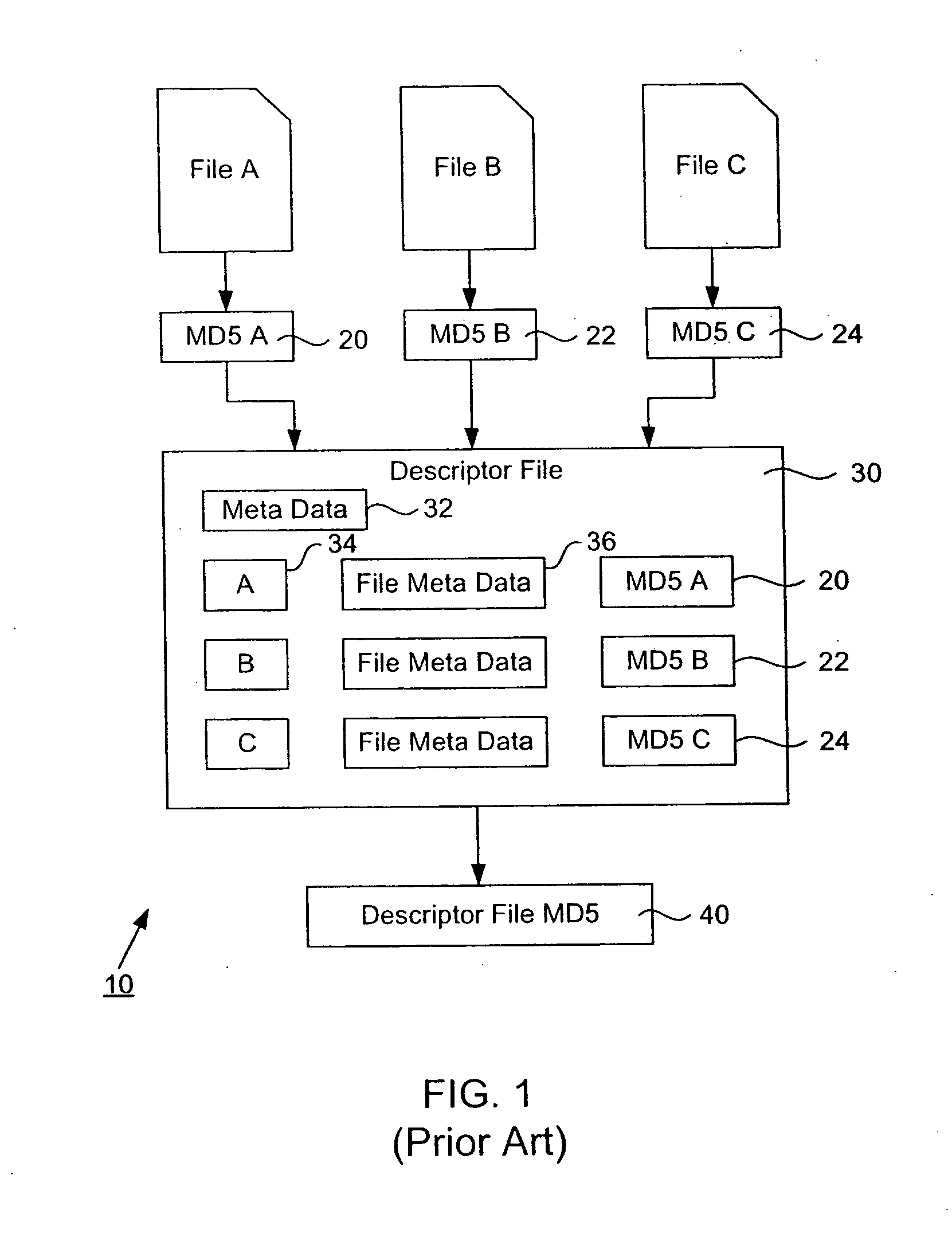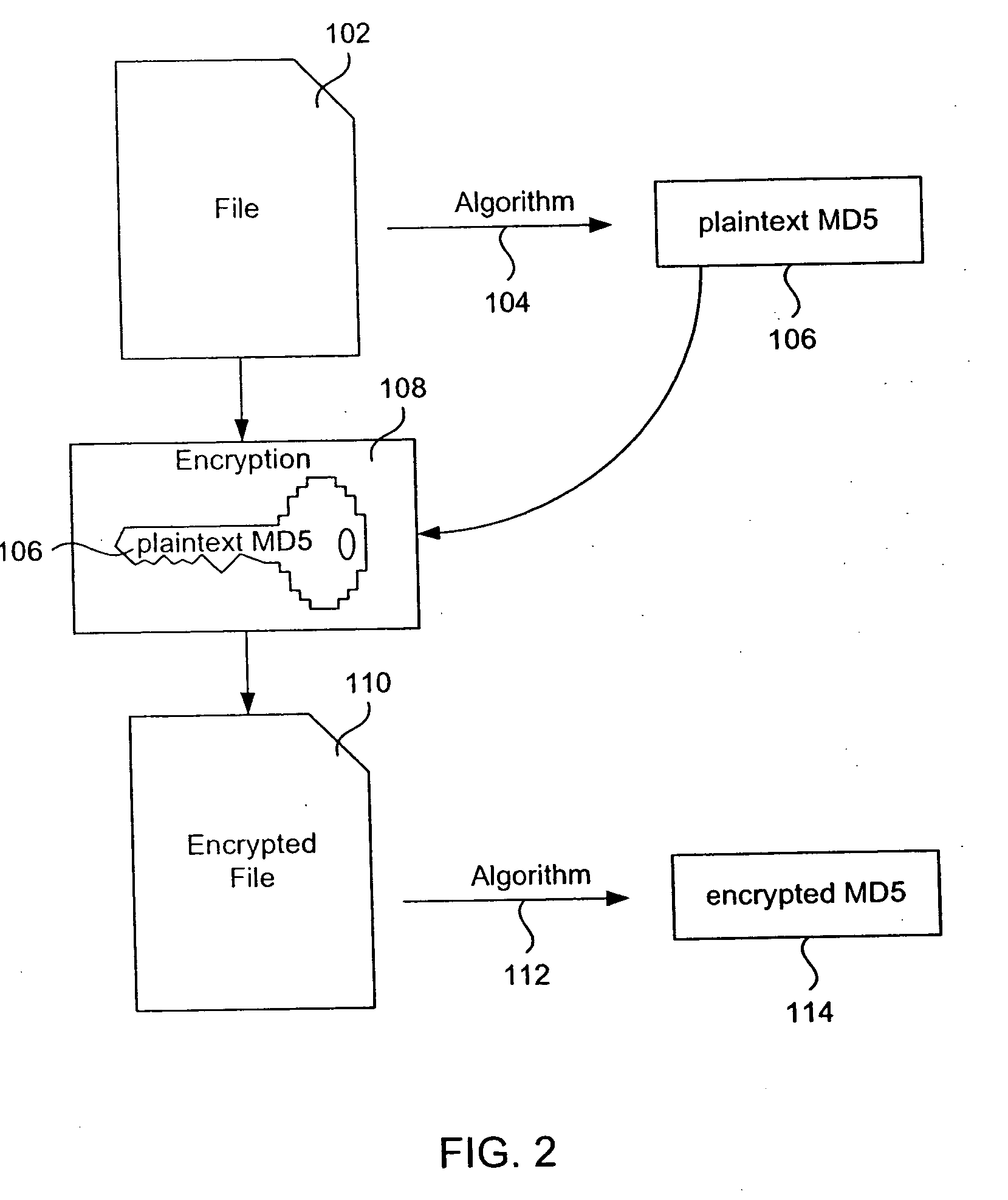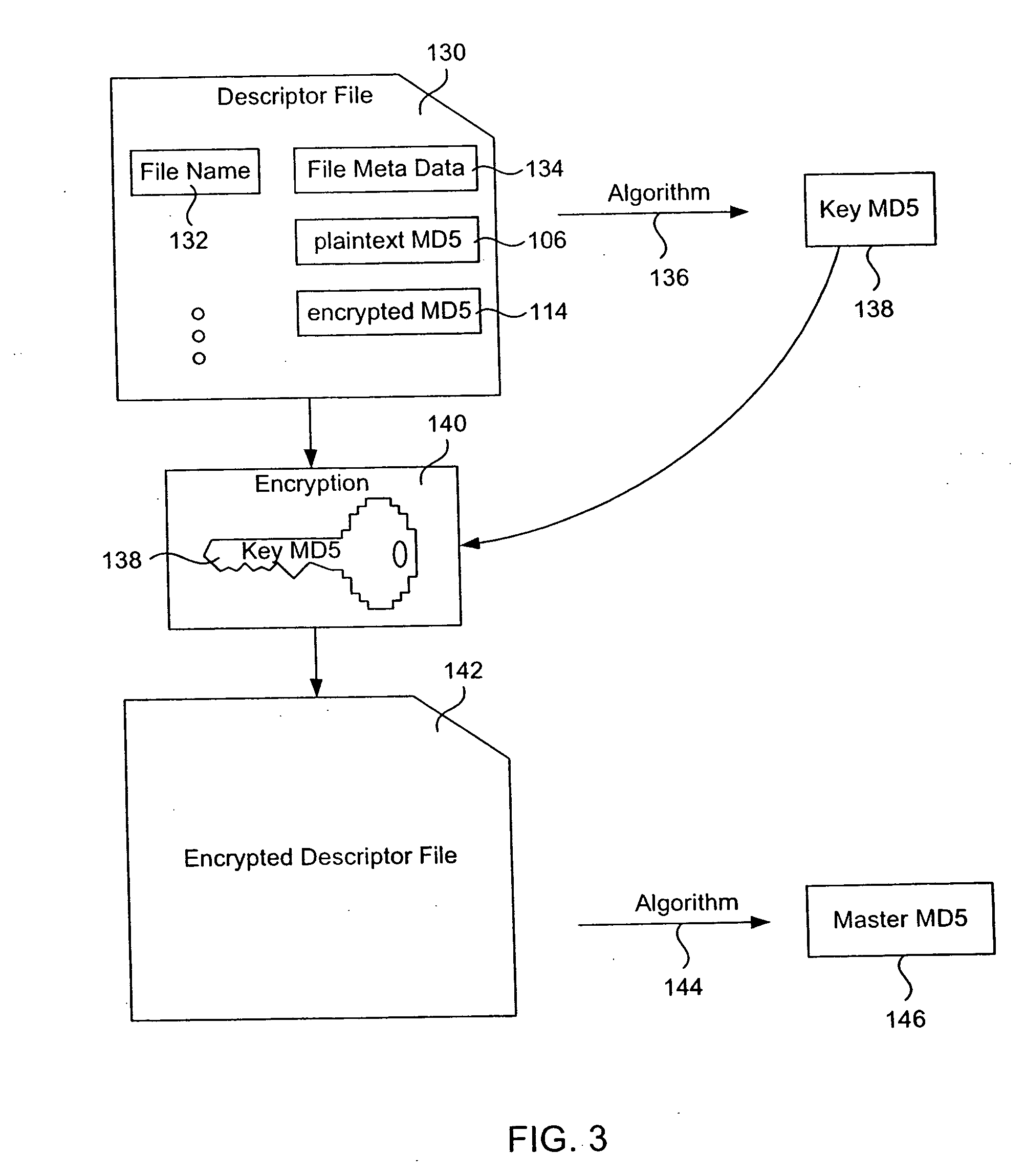System and method for secure storage, transfer and retrieval of content addressable information
a content addressable information and secure storage technology, applied in the field of secure storage, transfer and retrieval of information using a computer, can solve the problem that parties cannot, however, be able to decrypt encrypted descriptor files, and achieve the effect of safe storage or transfer
- Summary
- Abstract
- Description
- Claims
- Application Information
AI Technical Summary
Benefits of technology
Problems solved by technology
Method used
Image
Examples
first embodiment
[0046]FIG. 2 illustrates a technique by which a file may be encrypted according to one embodiment of the invention. FIG. 3 illustrates a technique by which a descriptor file is created and encrypted according to one embodiment of the invention. FIG. 4 is a flow diagram describing how an intrinsic unique identifier (IUI) may be created for a group of files. FIG. 4 will be explained with reference to FIGS. 2 and 3. In step 202 a group of files (or one file) is selected and its corresponding file data and any meta data is collected. As mentioned above, the files selected may be computer files or any of the digital information previously described. The files selected may include a descriptor file, any type of encrypted or compressed file or files that themselves contain intrinsic unique identifiers. File 102 is an example of one of the files selected and will be used to illustrate this embodiment. Other selected files or information are preferably treated in a similar fashion as file 10...
second embodiment
[0078] The first embodiment has described the technique by which a master MD5 and a key MD5 are provided to a user who wishes to locate and access a collection of encrypted files. Because the master MD5 only allows access to encrypted descriptor file 142, it would be difficult for a user to locate and retrieve the encrypted data files because the descriptor file is encrypted. It is not until the user is also provided with the key MD5 that the user is able to decrypt the descriptor file and obtain the MD5s, allowing it to locate the encrypted data files. In various situations it may be desirable to allow a user to not only obtain the encrypted descriptor file at first, but also to allow the user to locate and obtain the encrypted data files without allowing those files to be encrypted. For example, this is useful when administrating pool servers, load balancing, caching, mirroring, and in other applications such as escrowing.
[0079]FIGS. 7 and 8 describe an embodiment by which the us...
PUM
 Login to View More
Login to View More Abstract
Description
Claims
Application Information
 Login to View More
Login to View More - R&D
- Intellectual Property
- Life Sciences
- Materials
- Tech Scout
- Unparalleled Data Quality
- Higher Quality Content
- 60% Fewer Hallucinations
Browse by: Latest US Patents, China's latest patents, Technical Efficacy Thesaurus, Application Domain, Technology Topic, Popular Technical Reports.
© 2025 PatSnap. All rights reserved.Legal|Privacy policy|Modern Slavery Act Transparency Statement|Sitemap|About US| Contact US: help@patsnap.com



